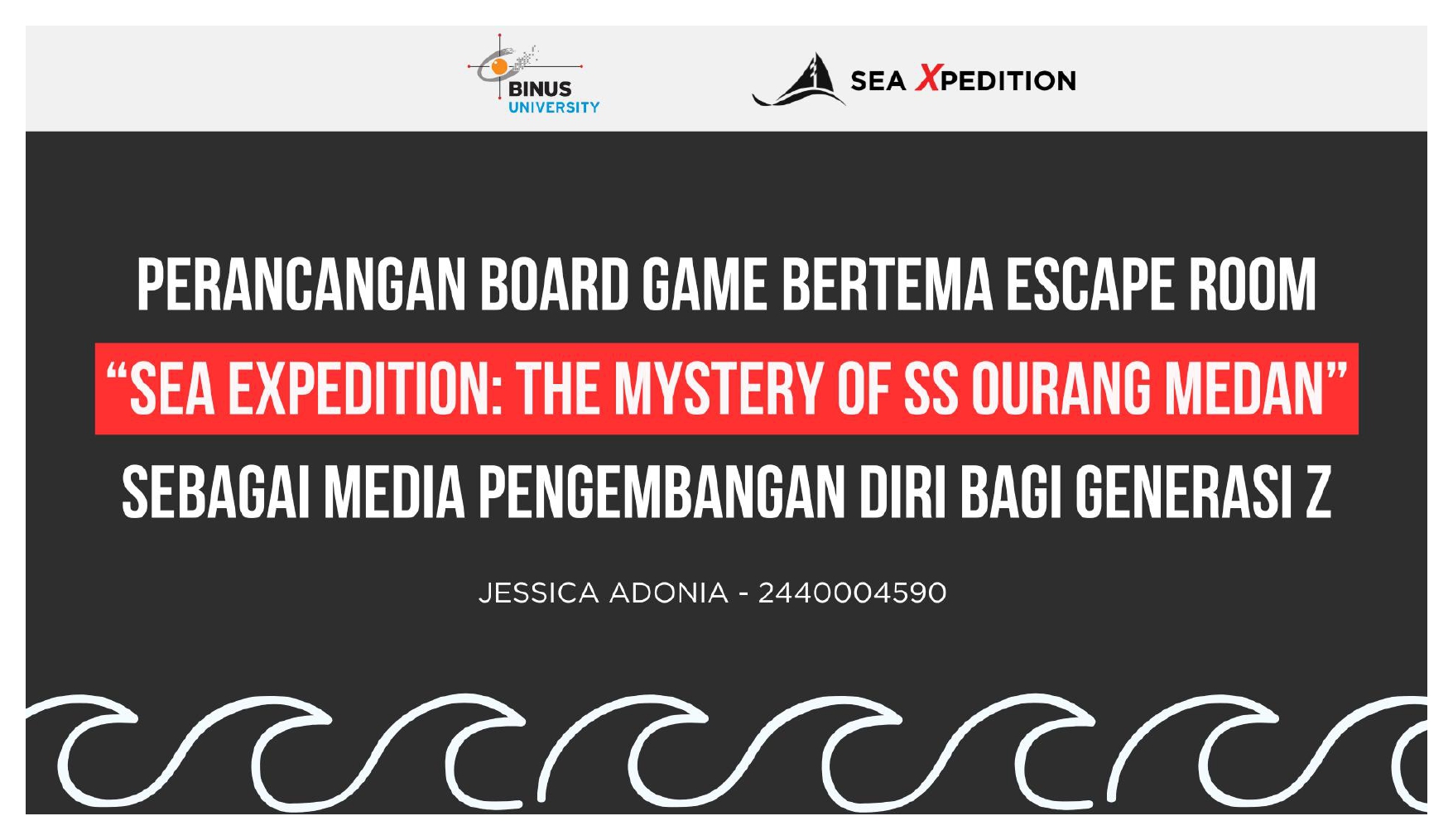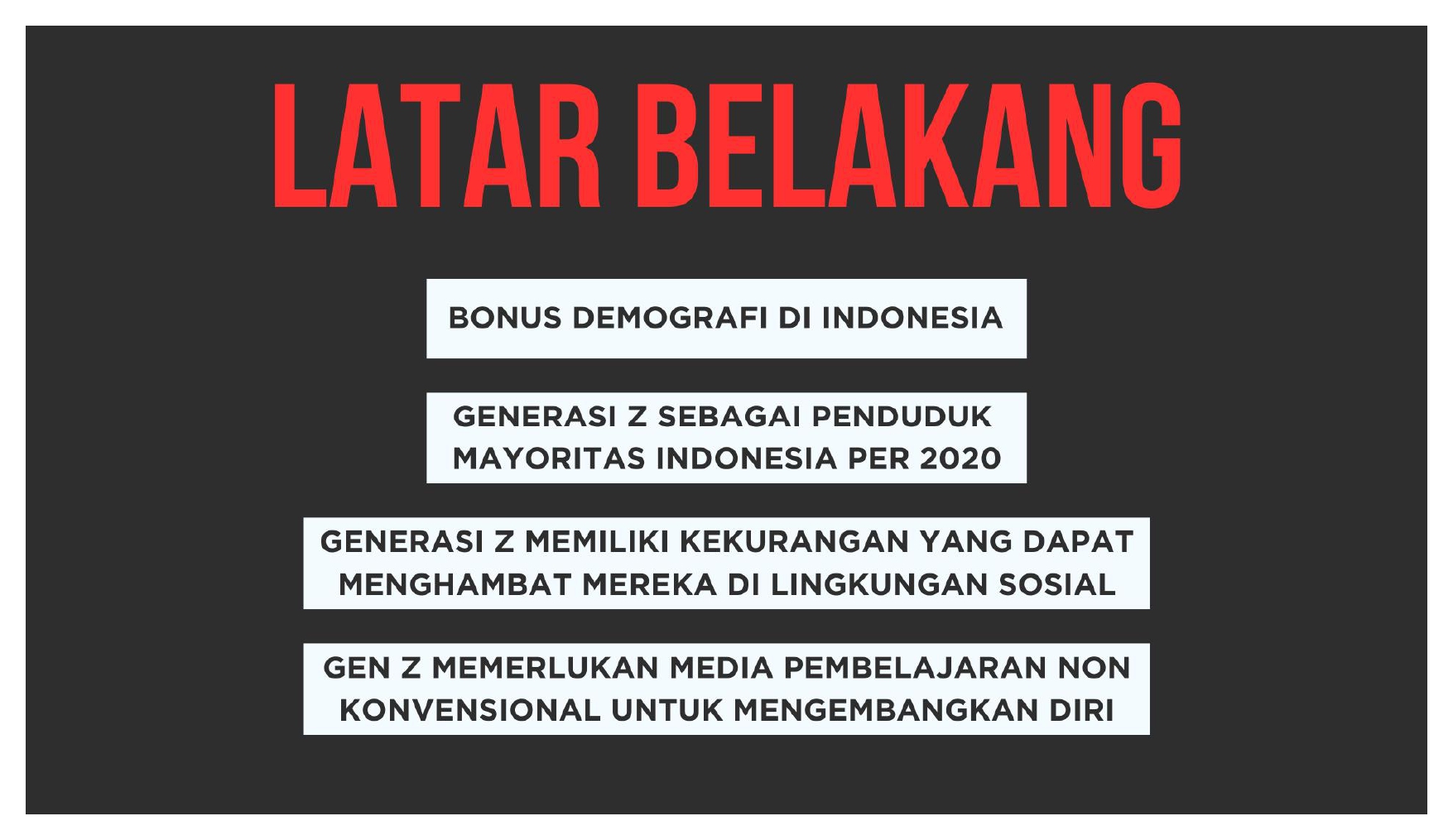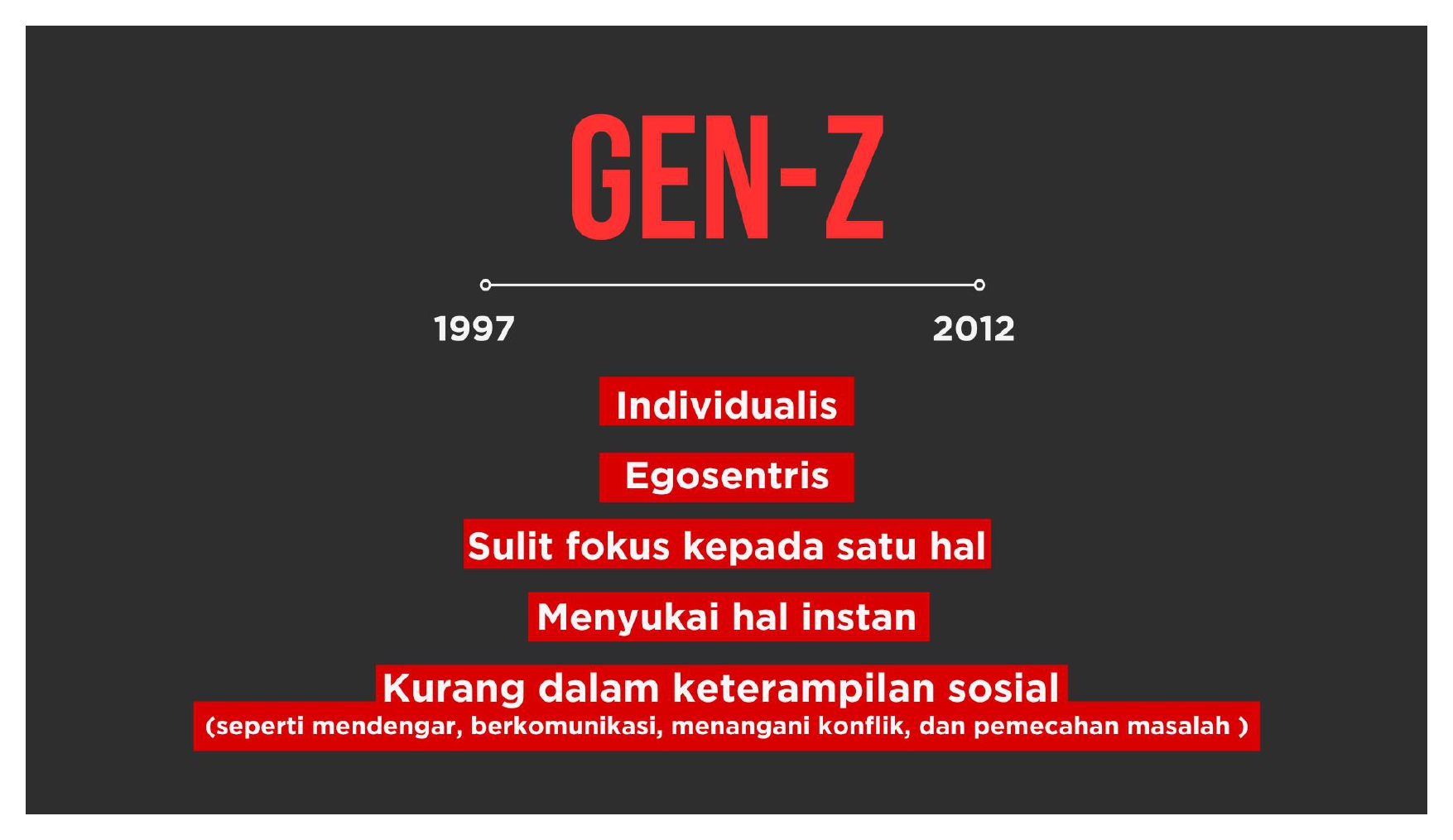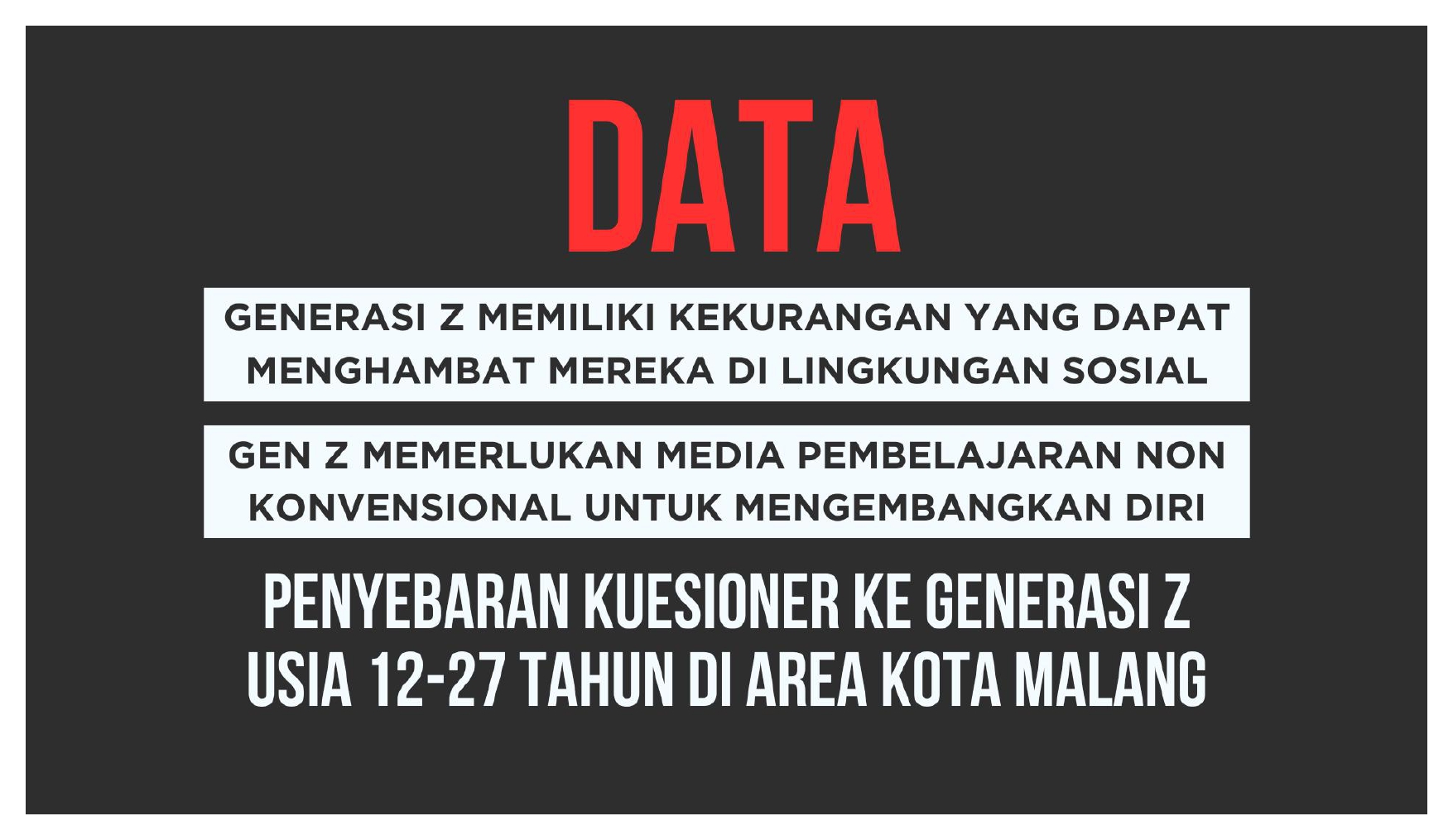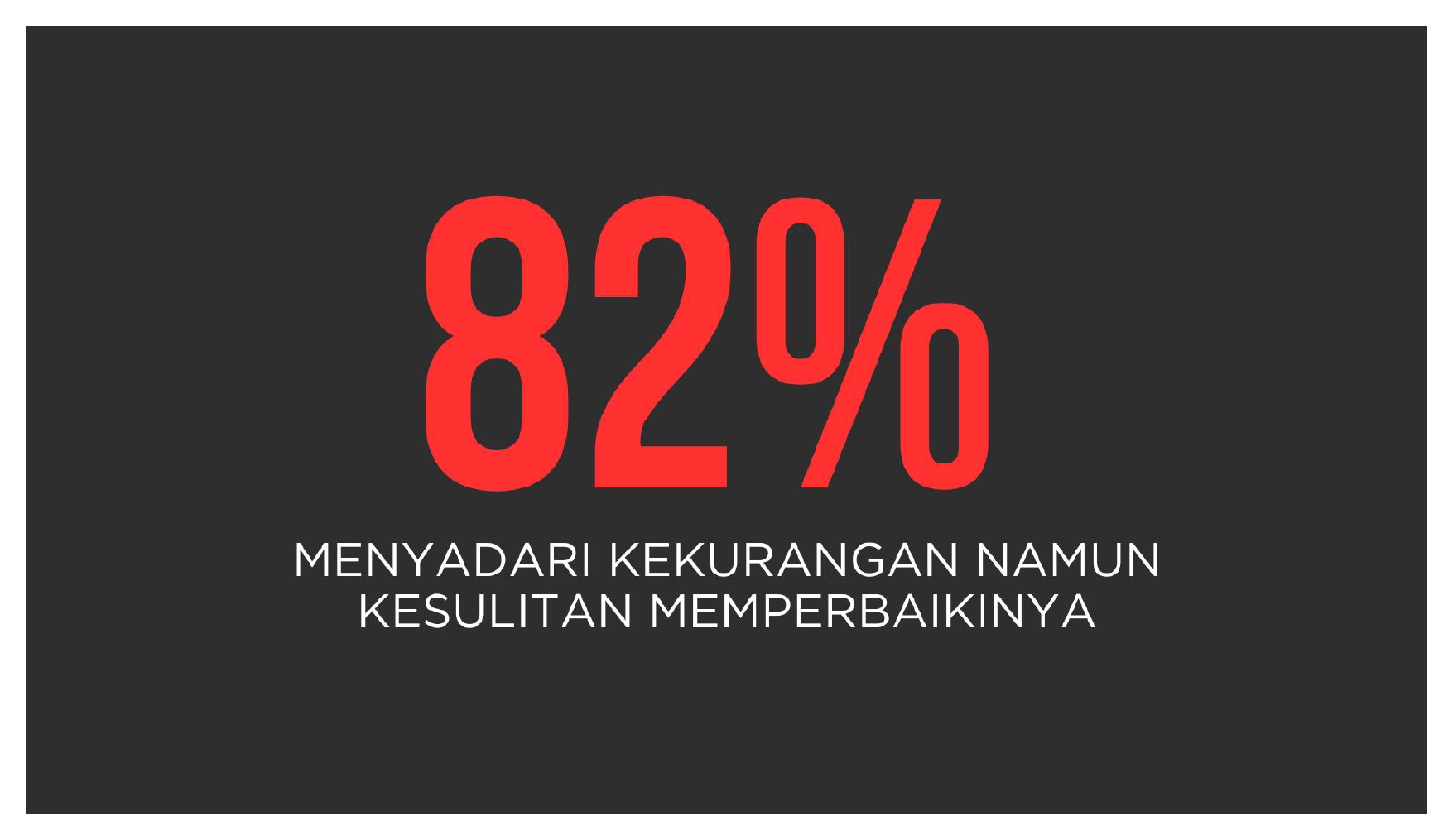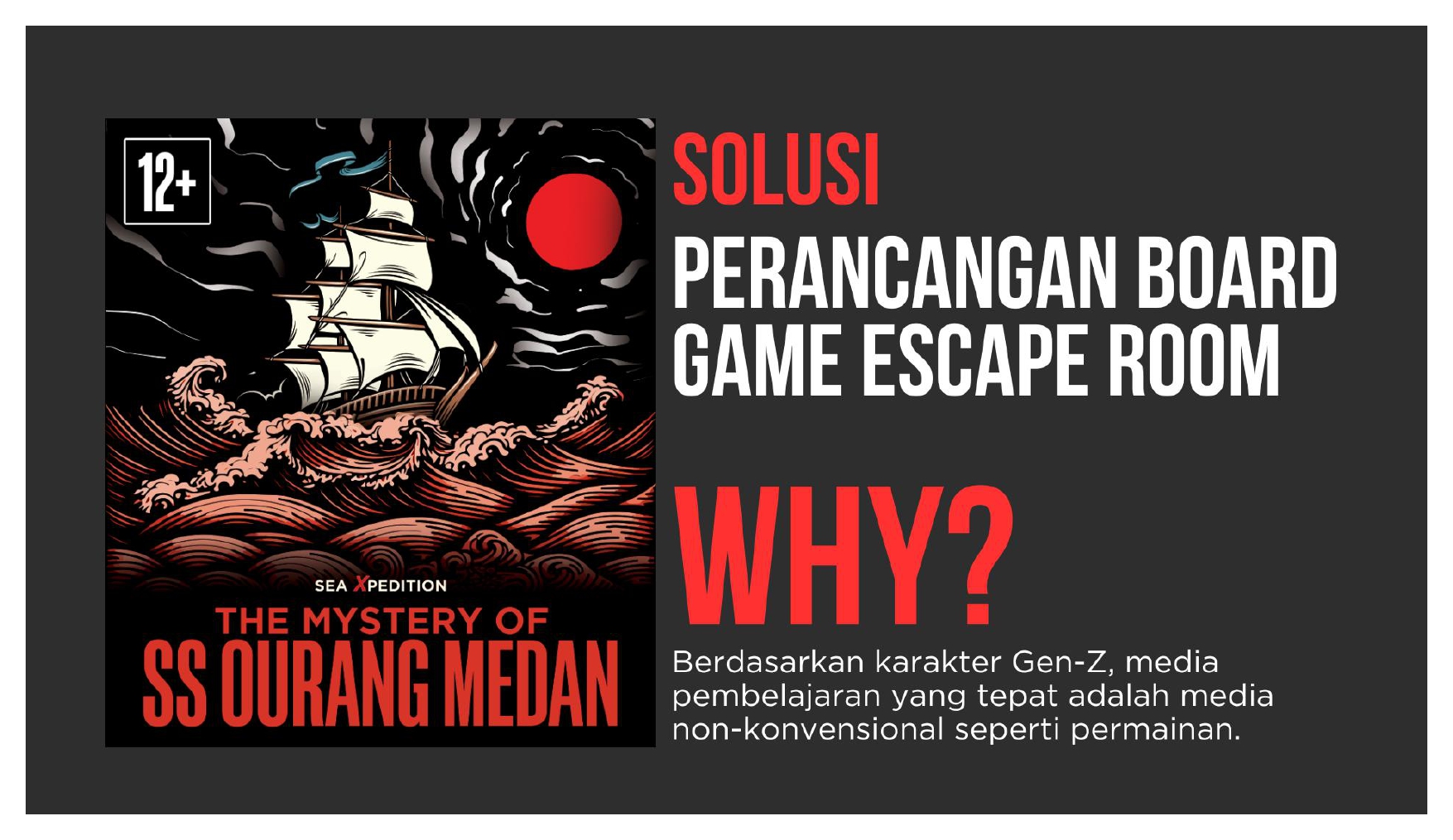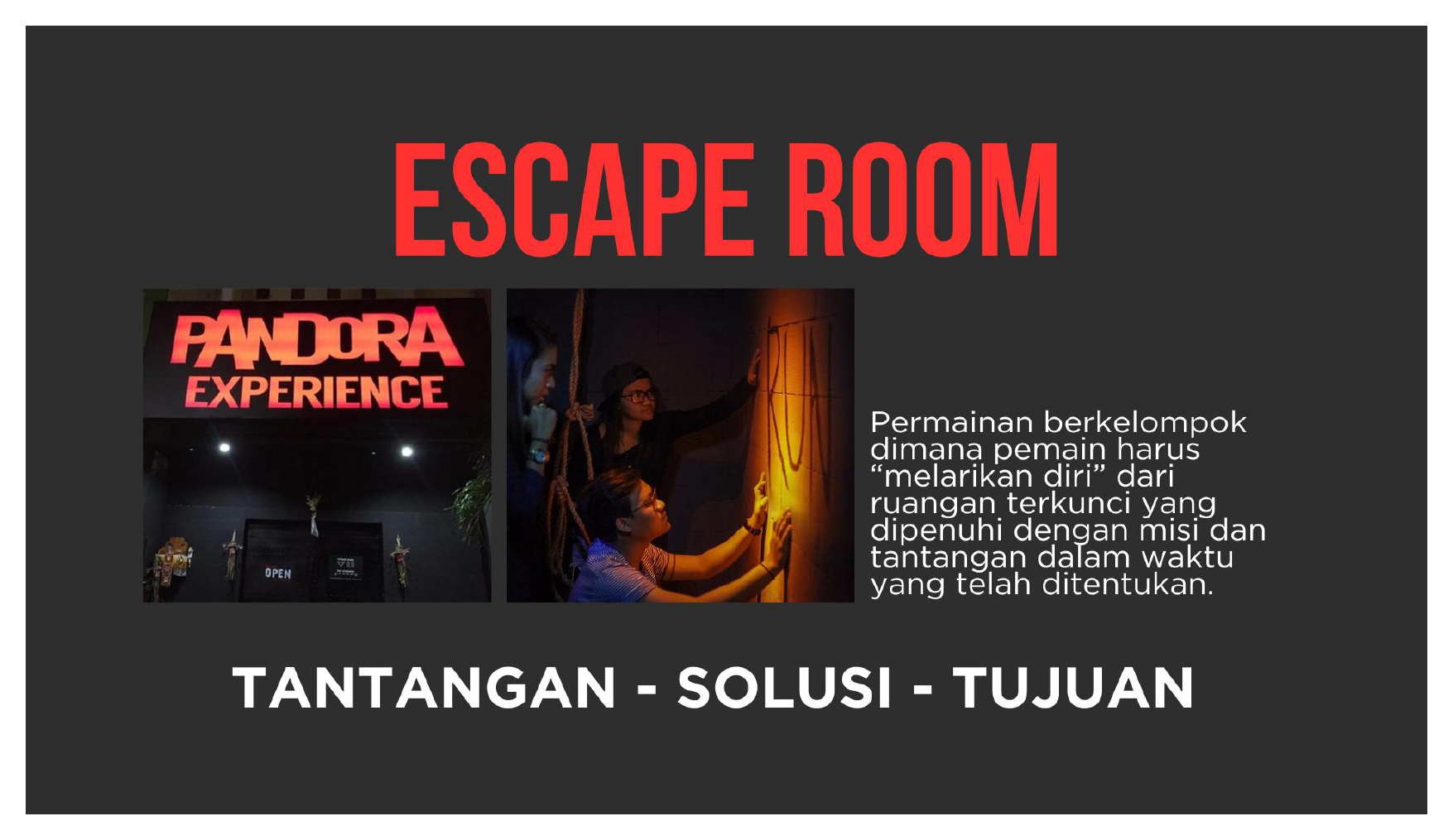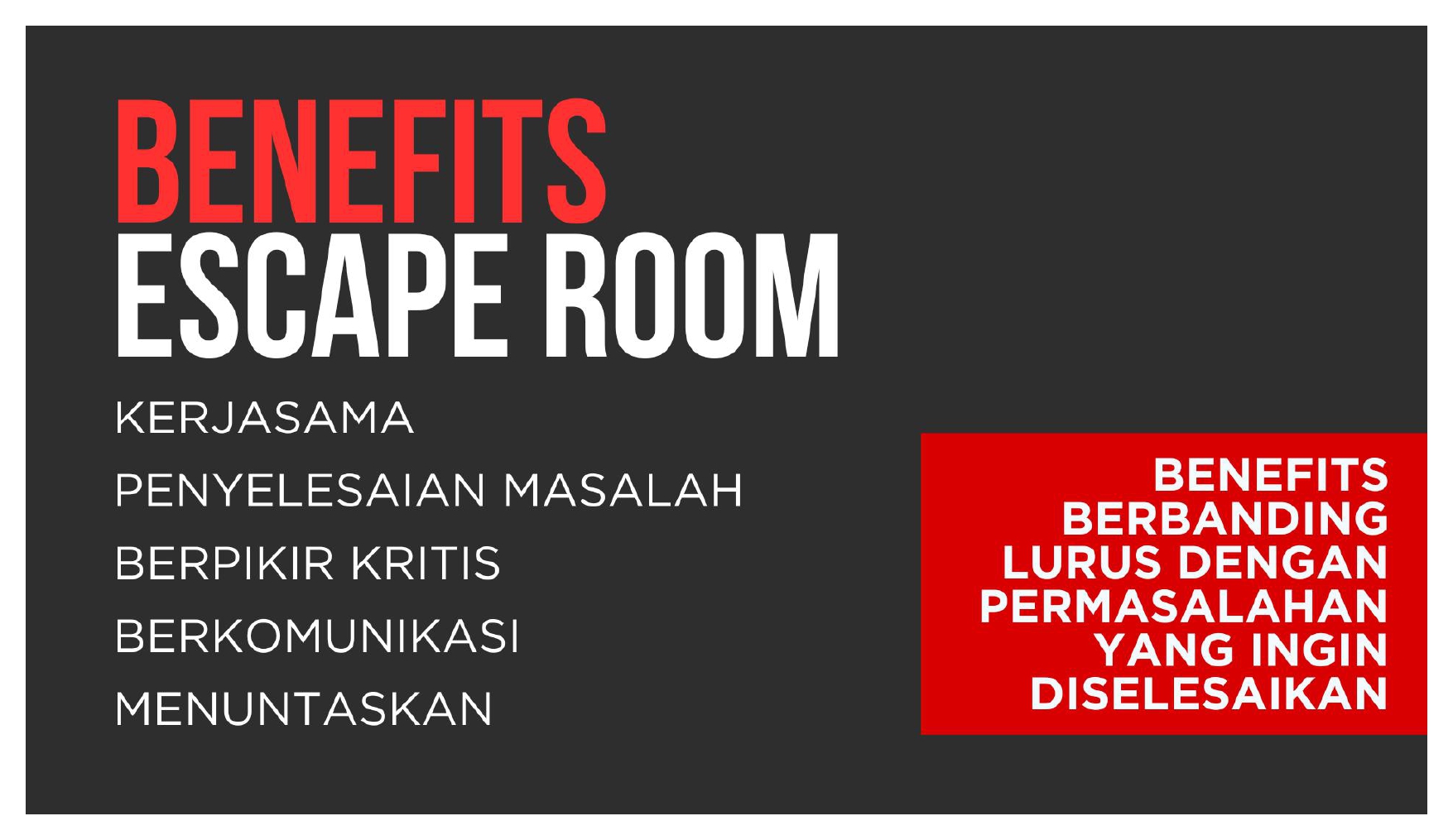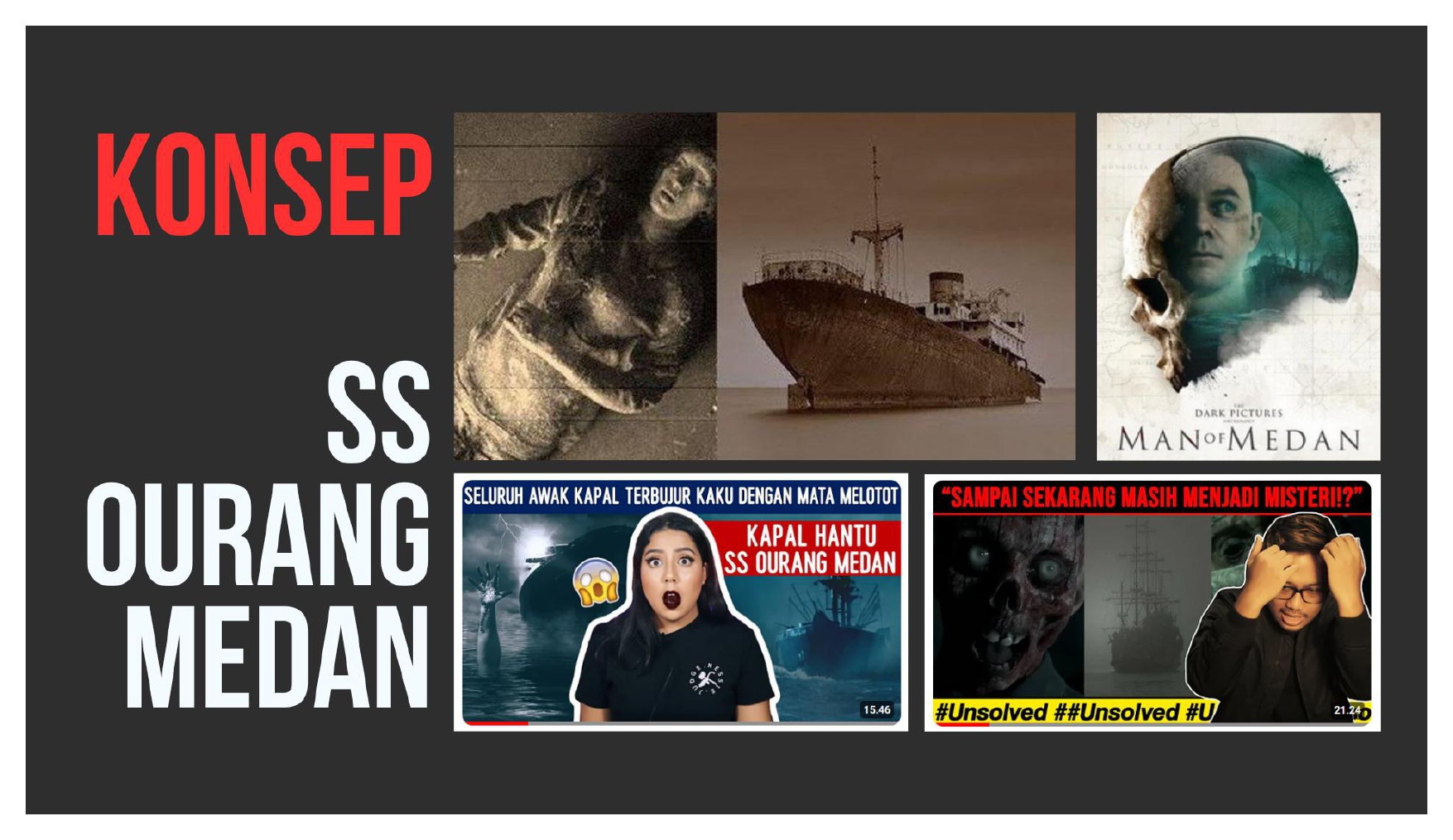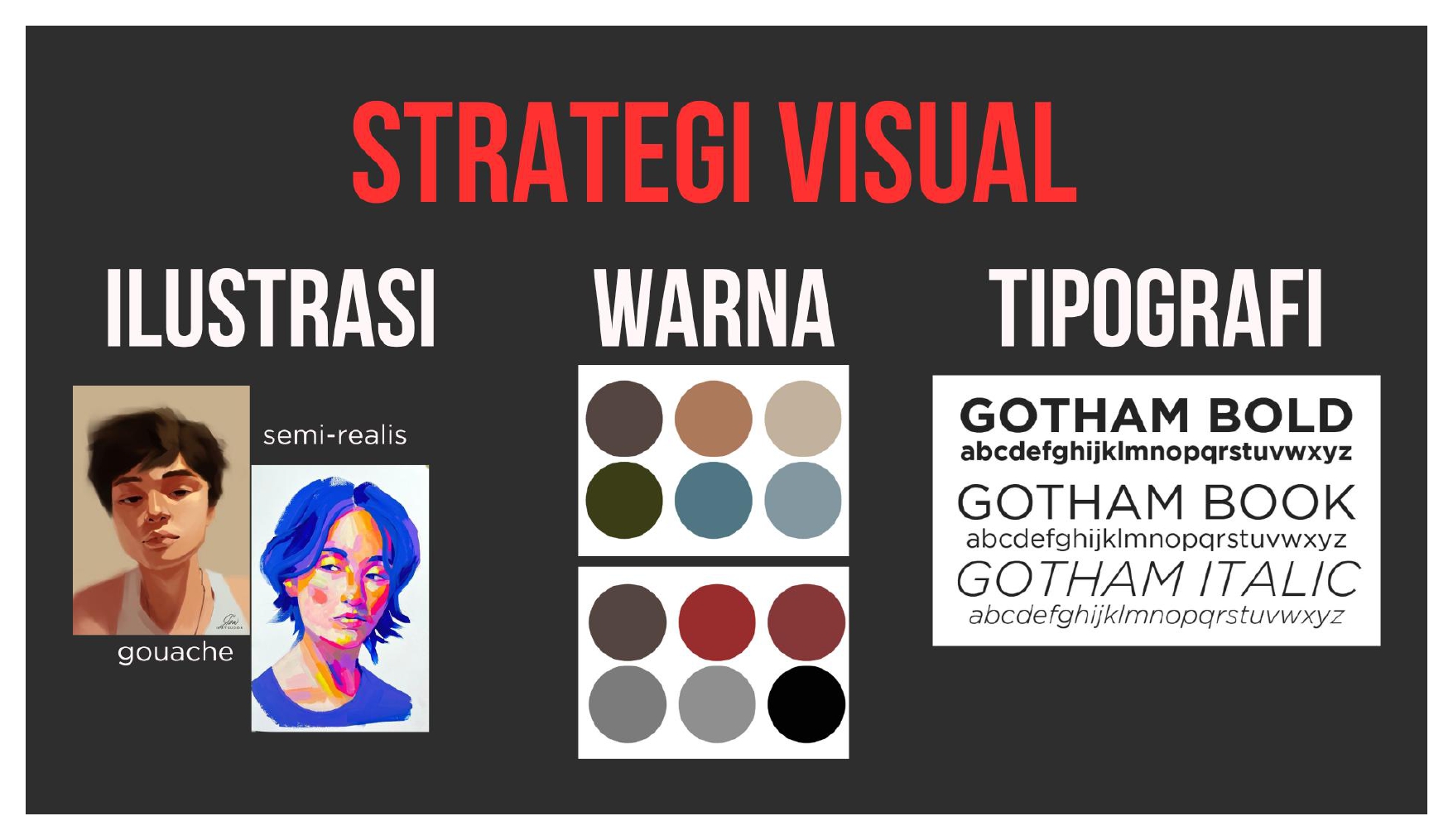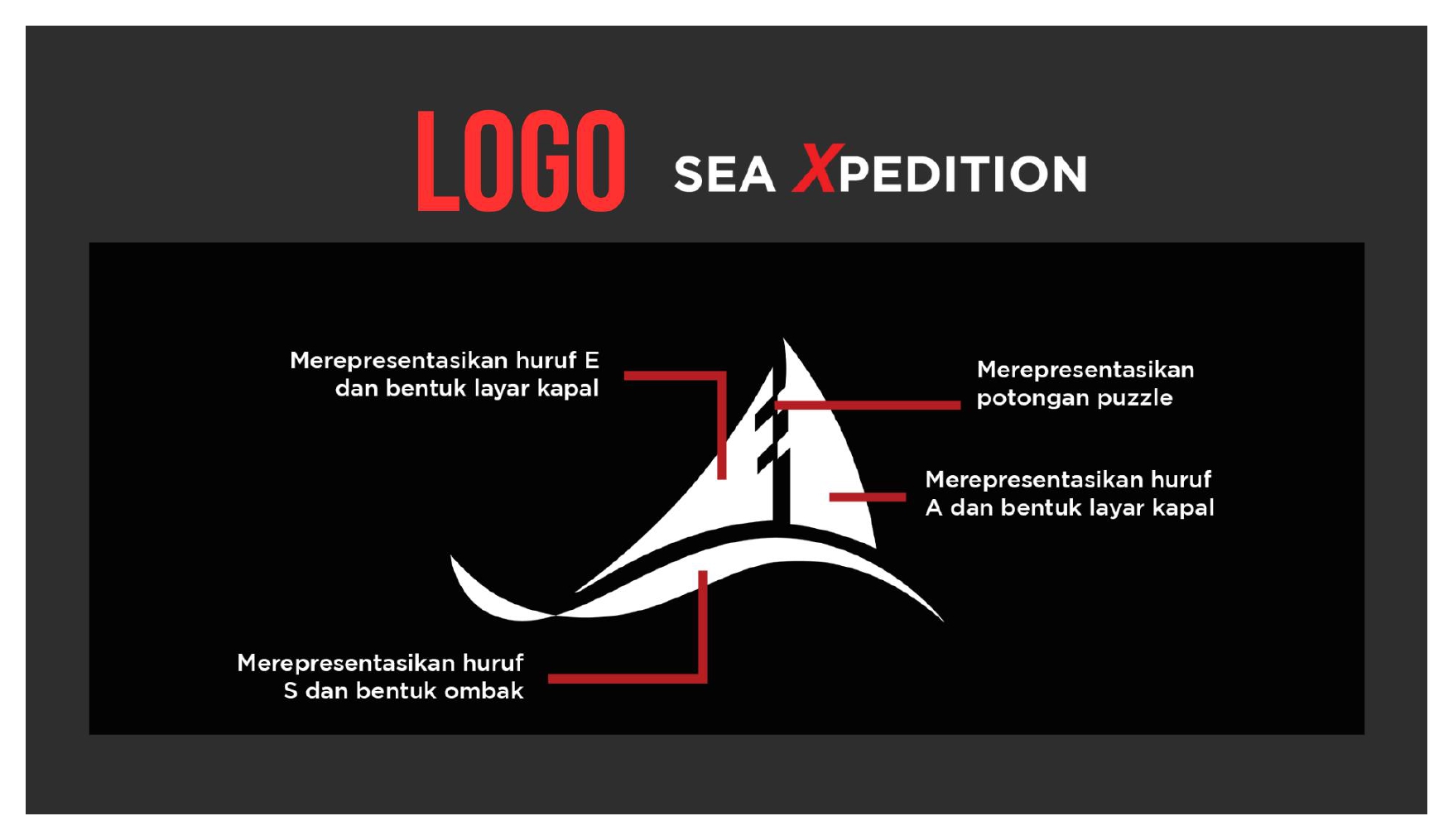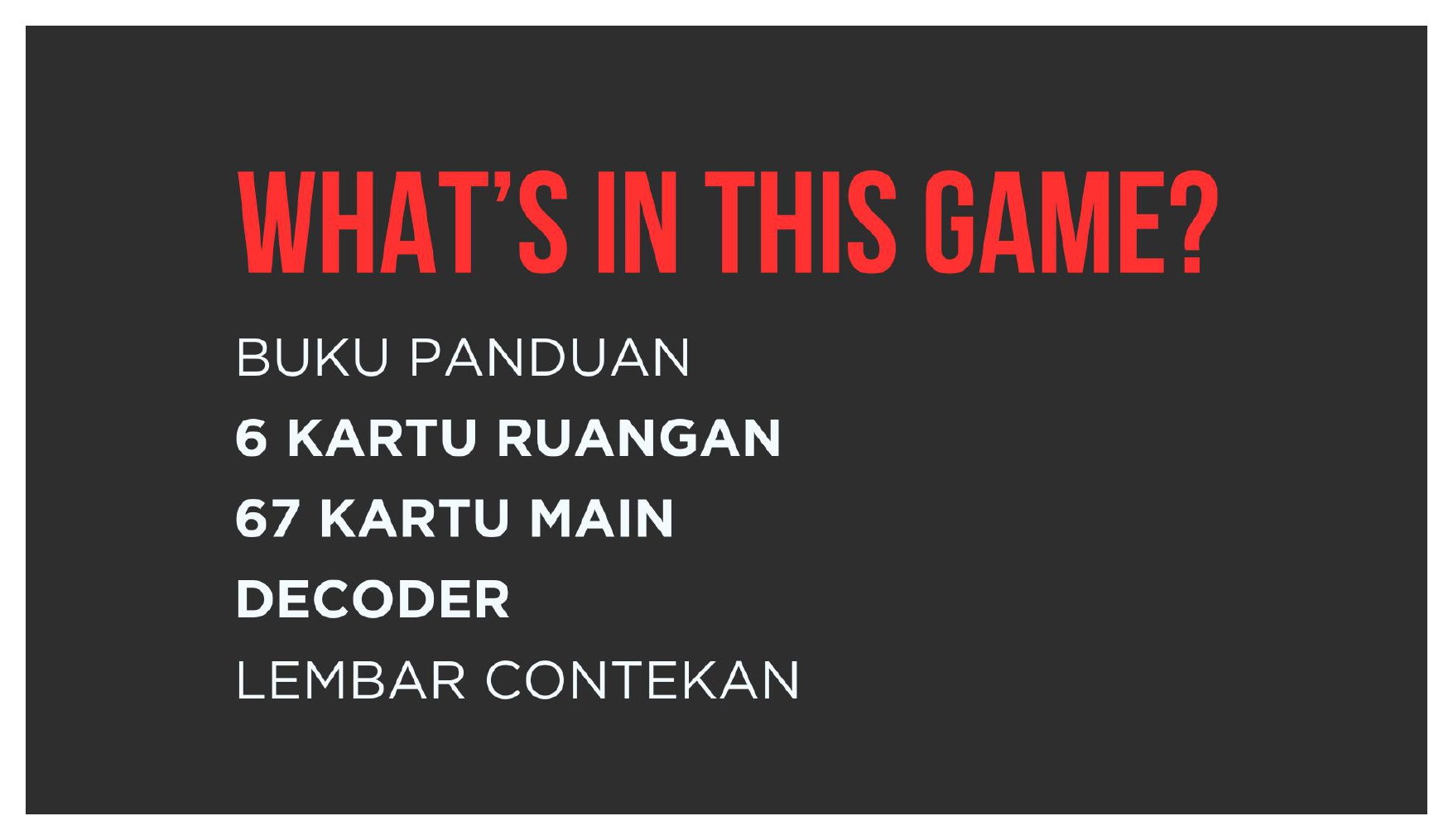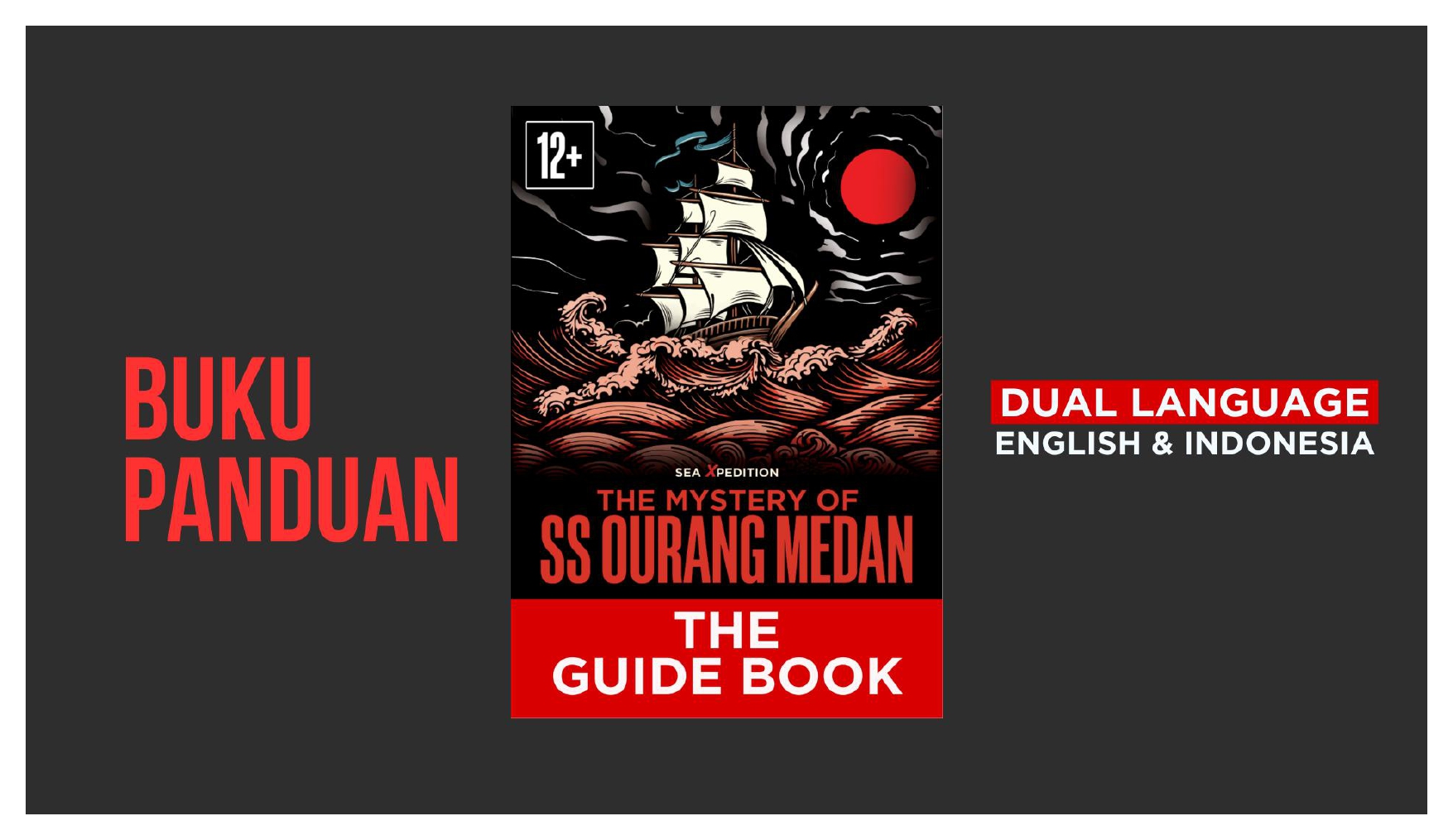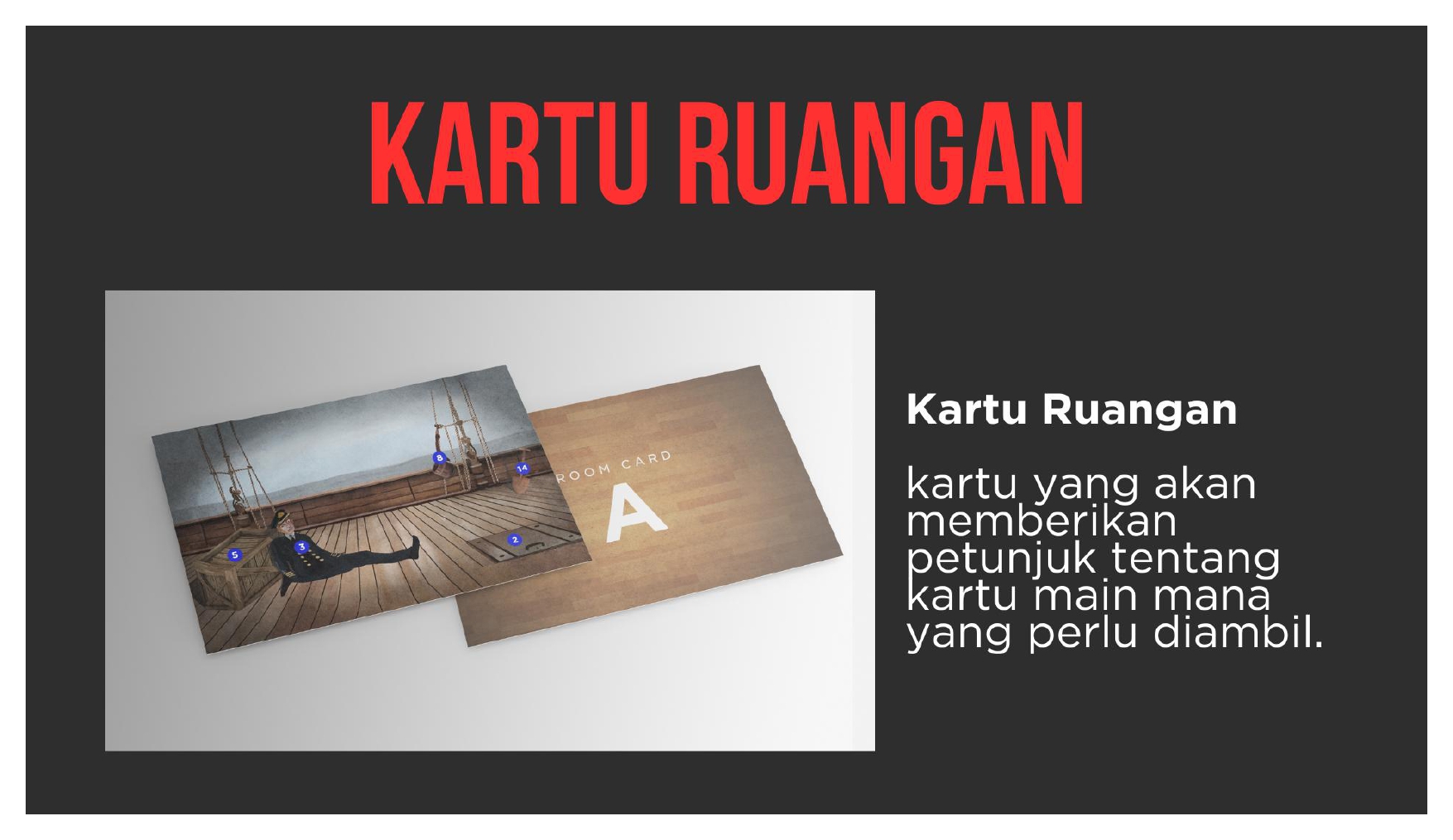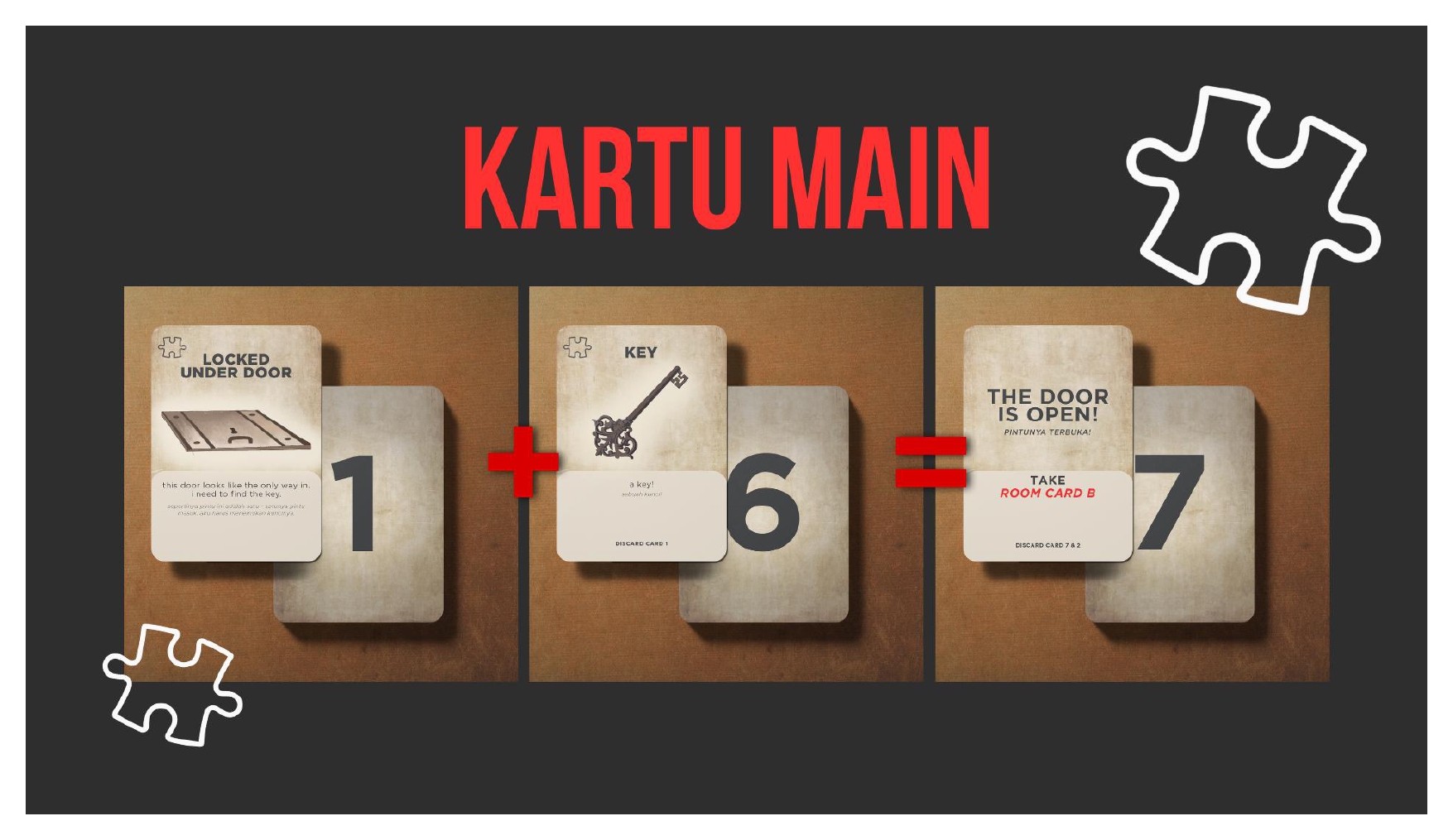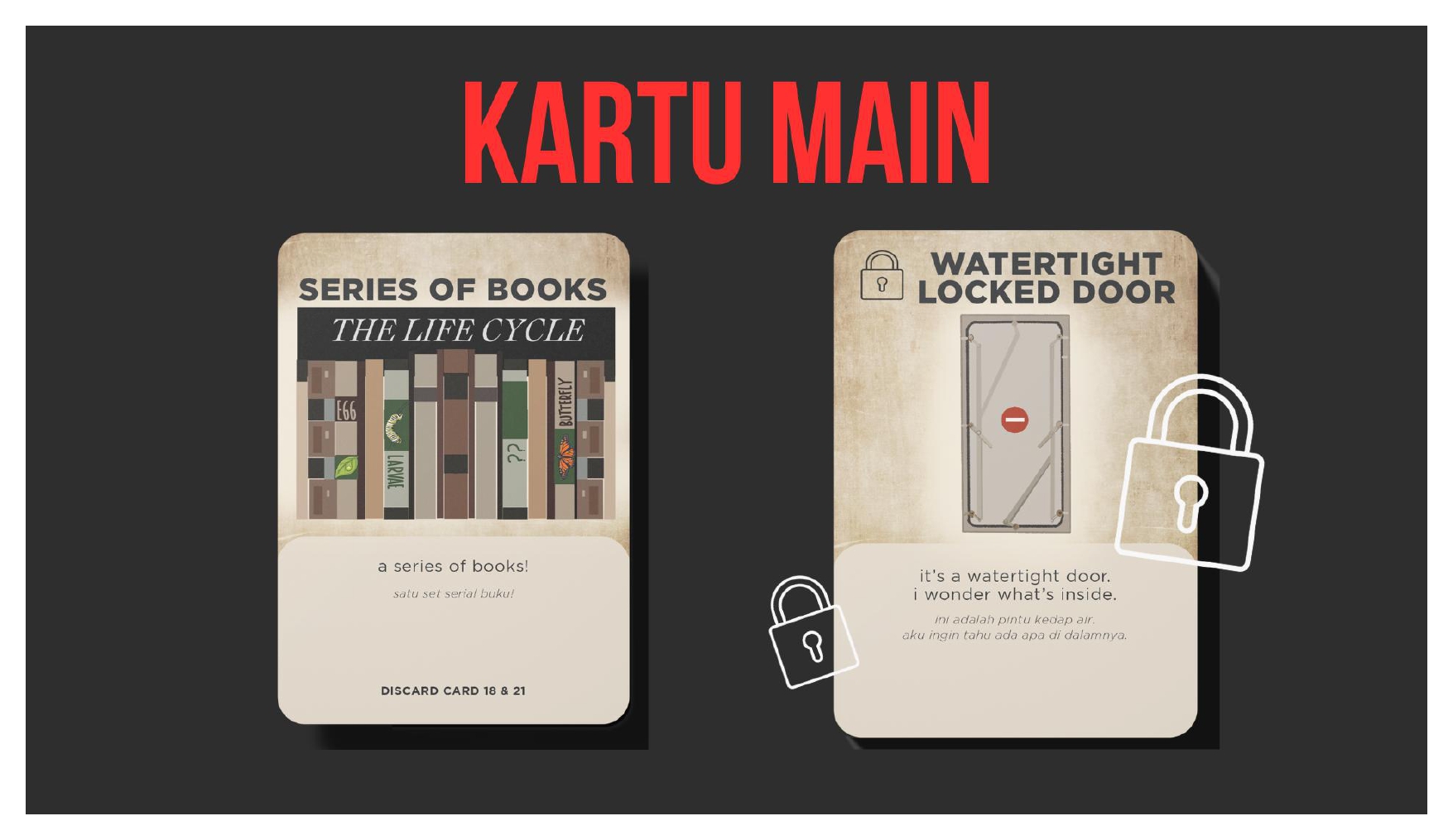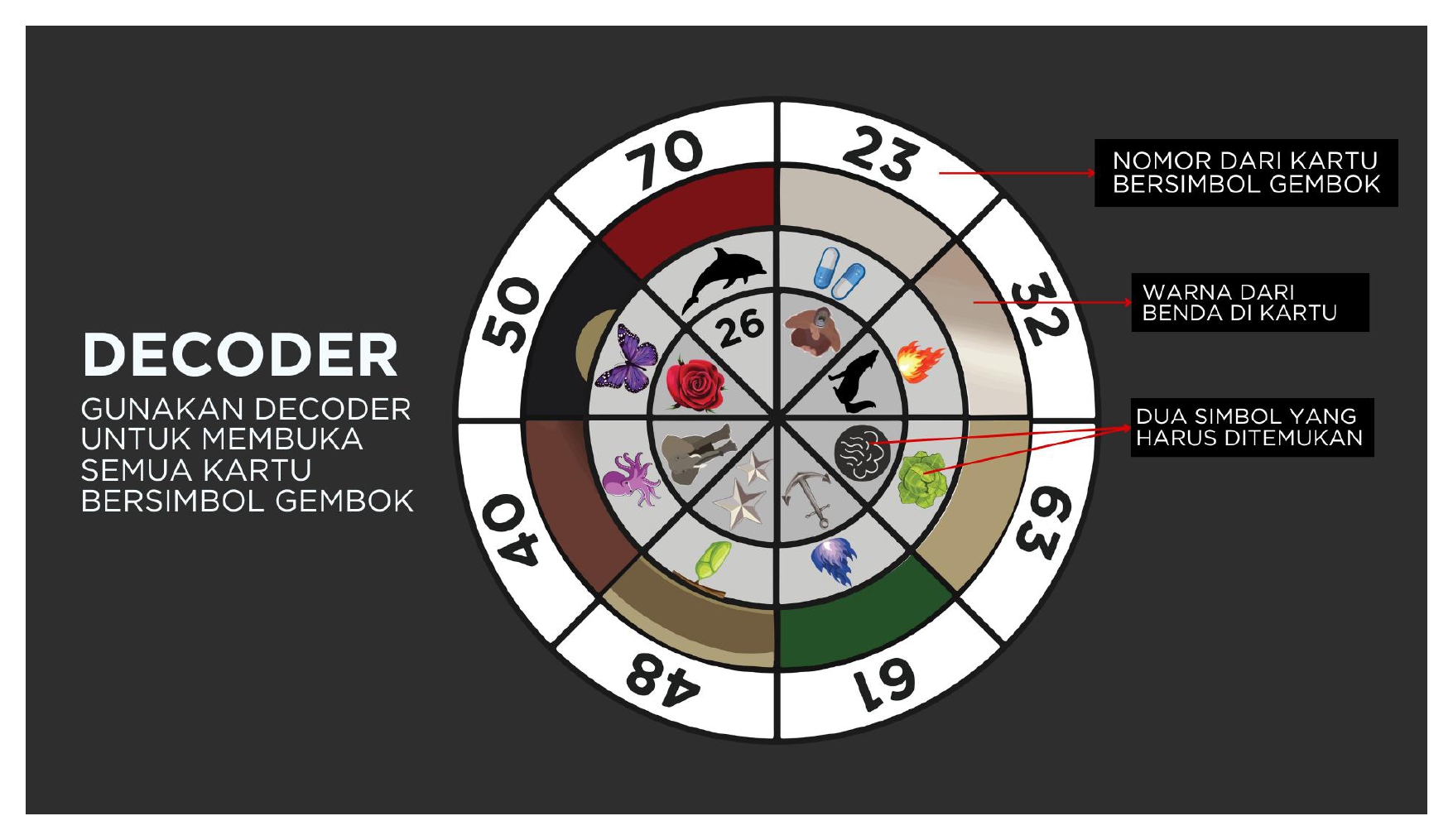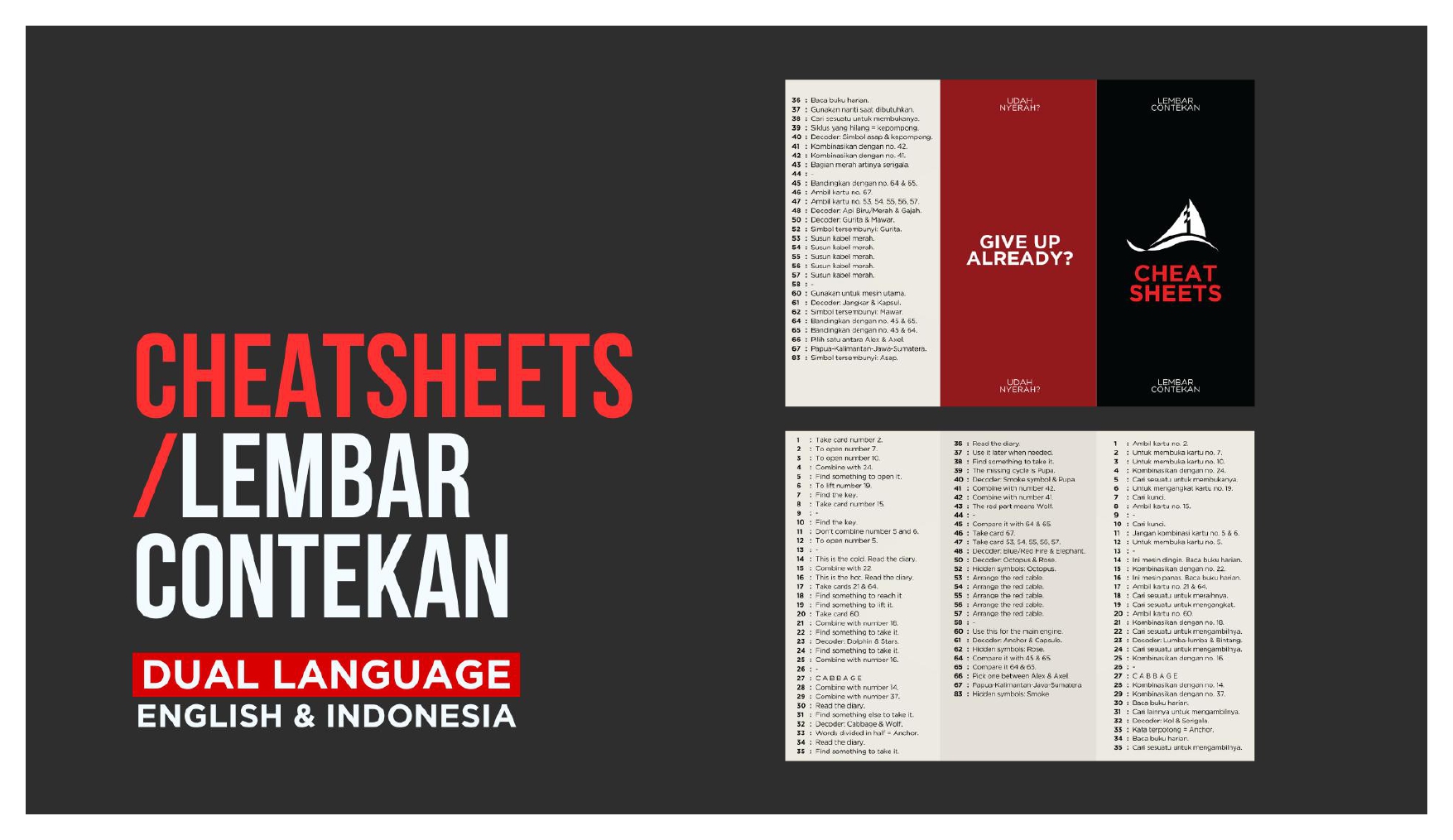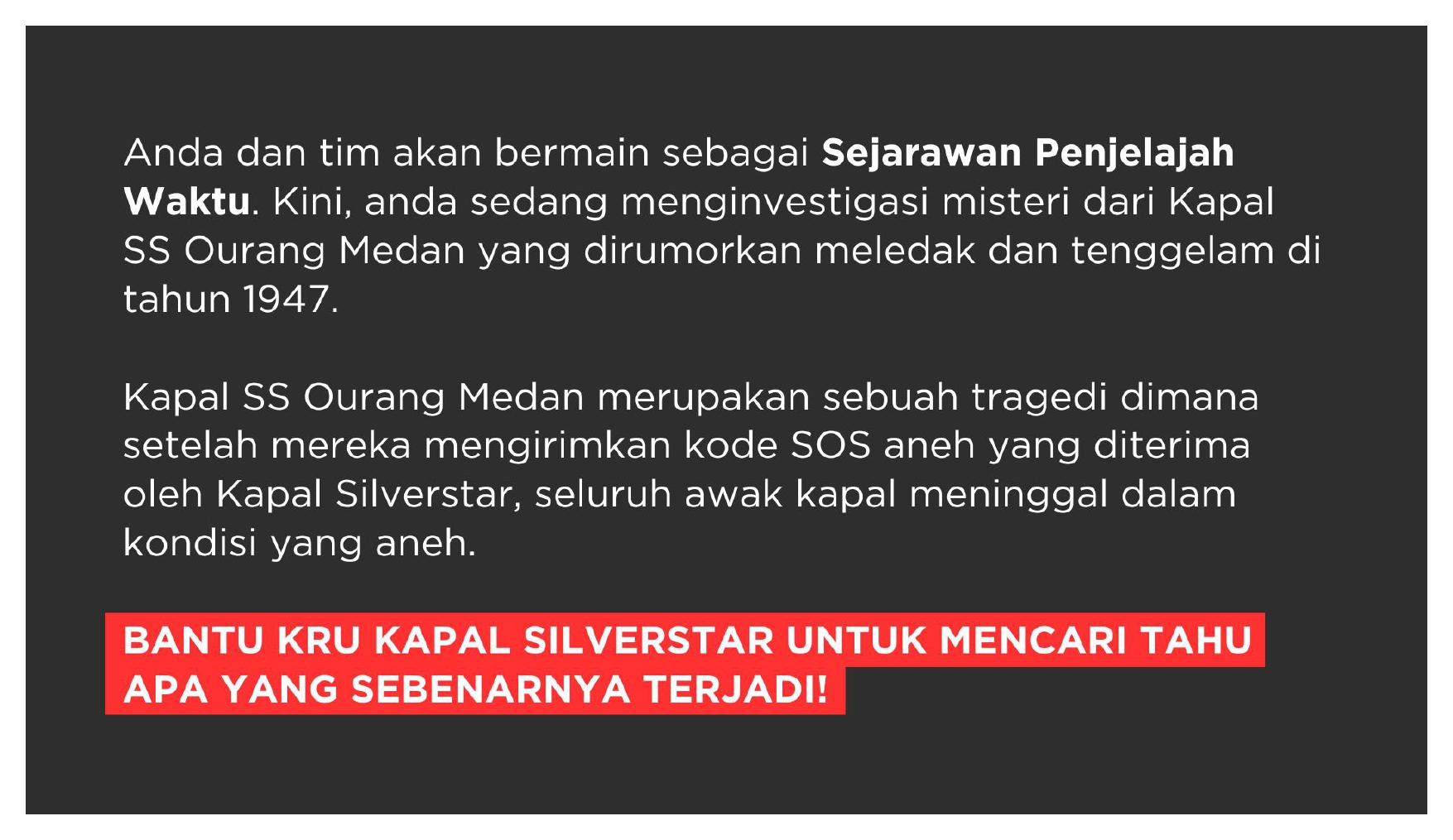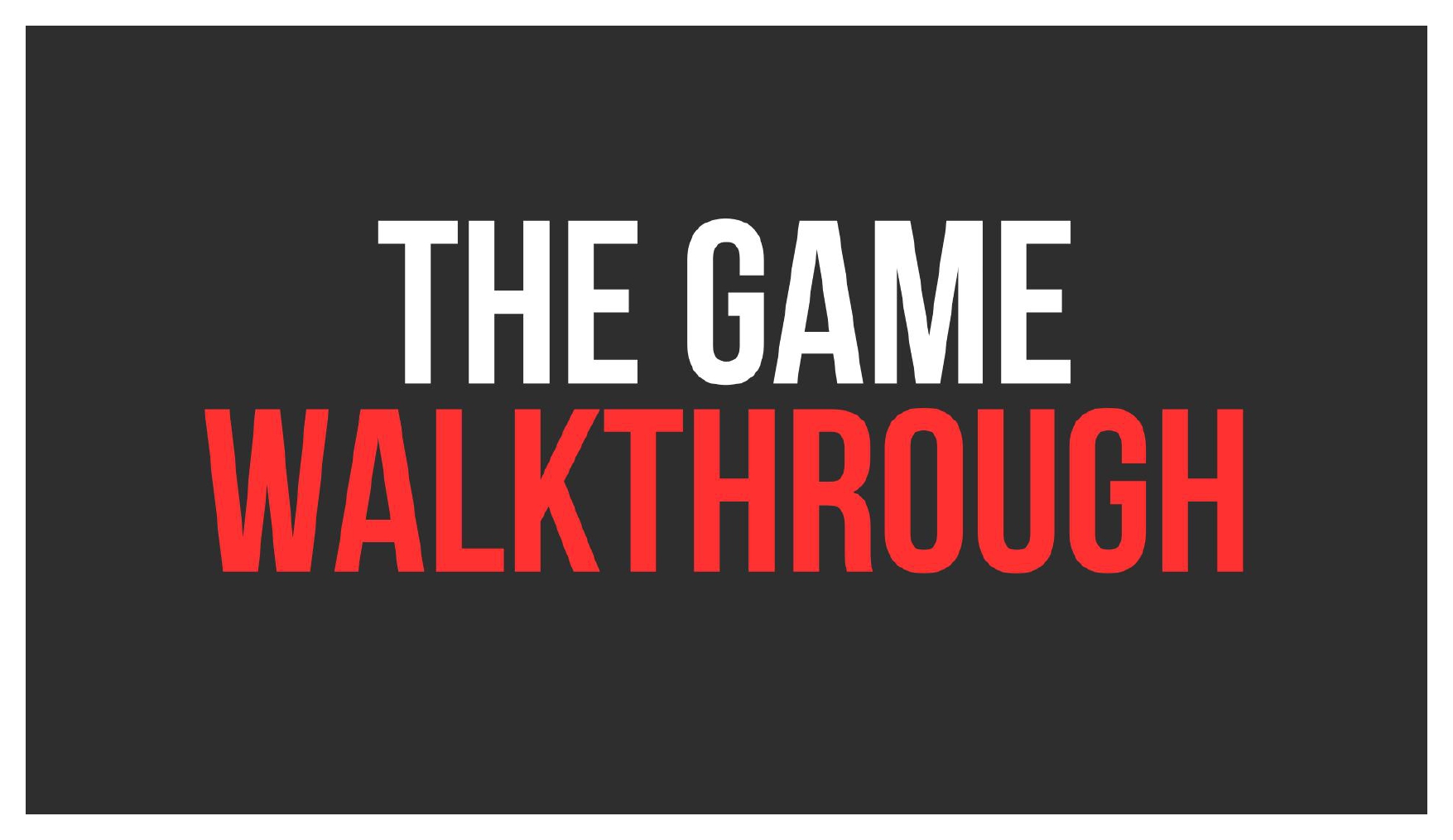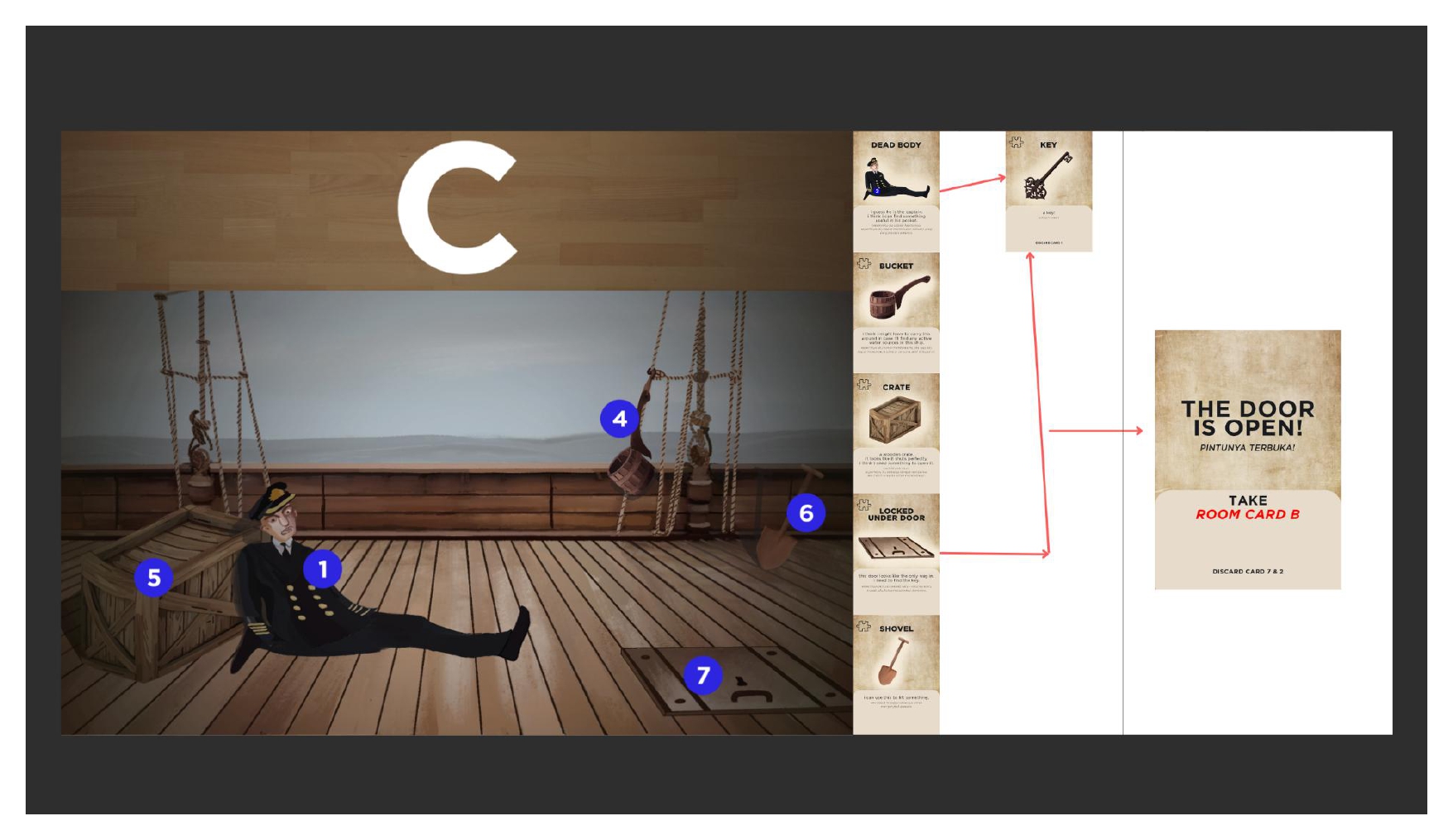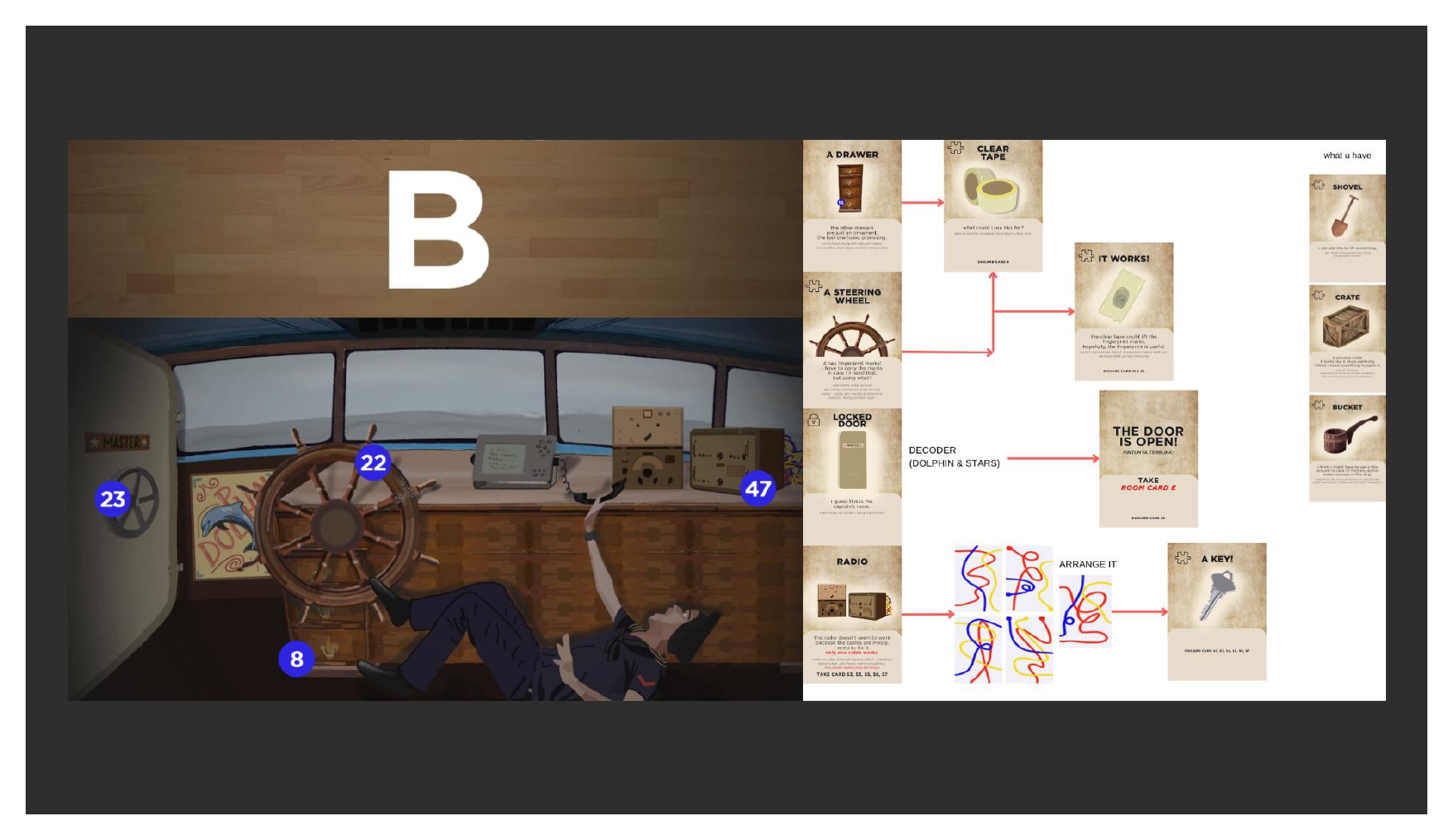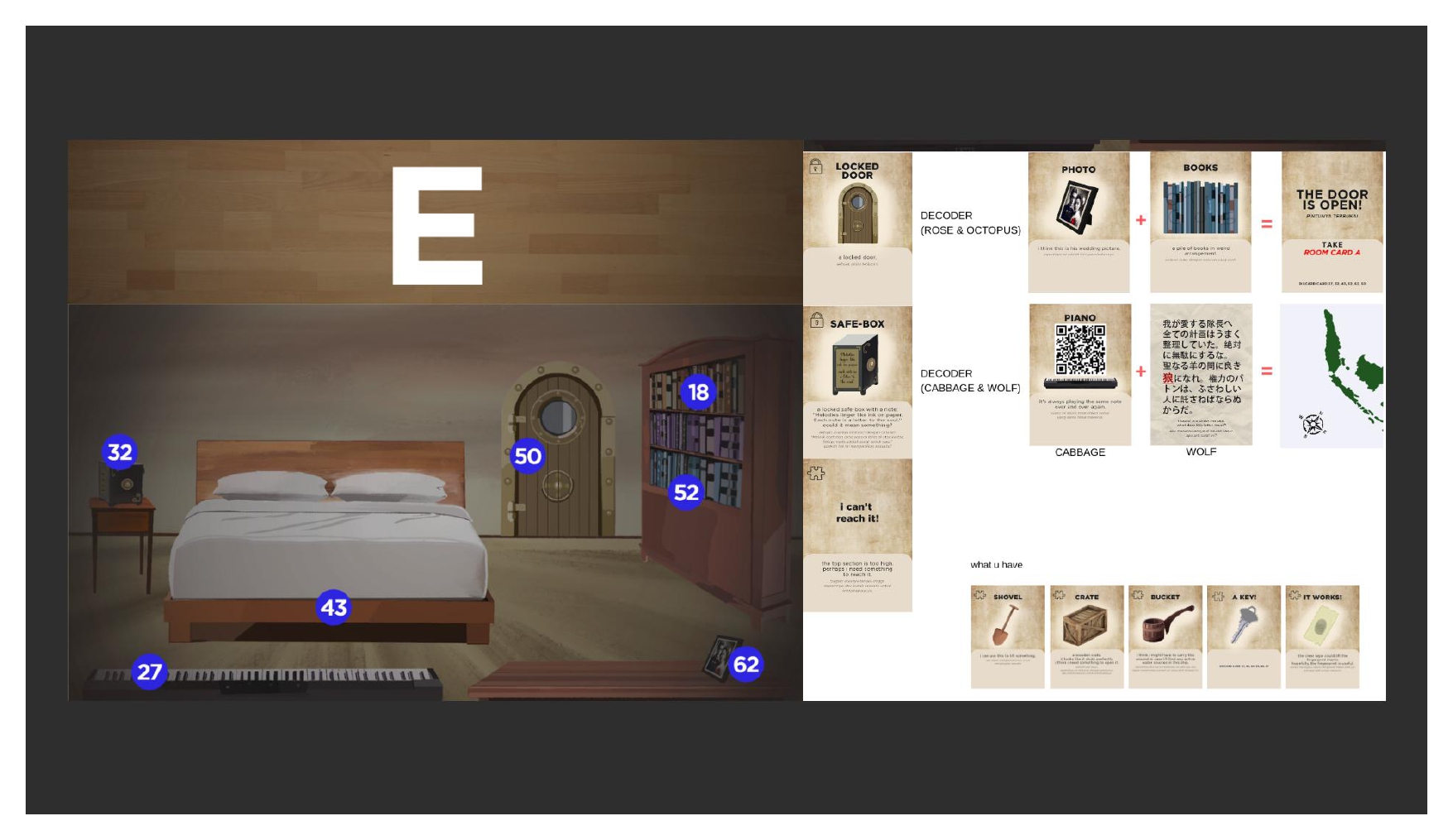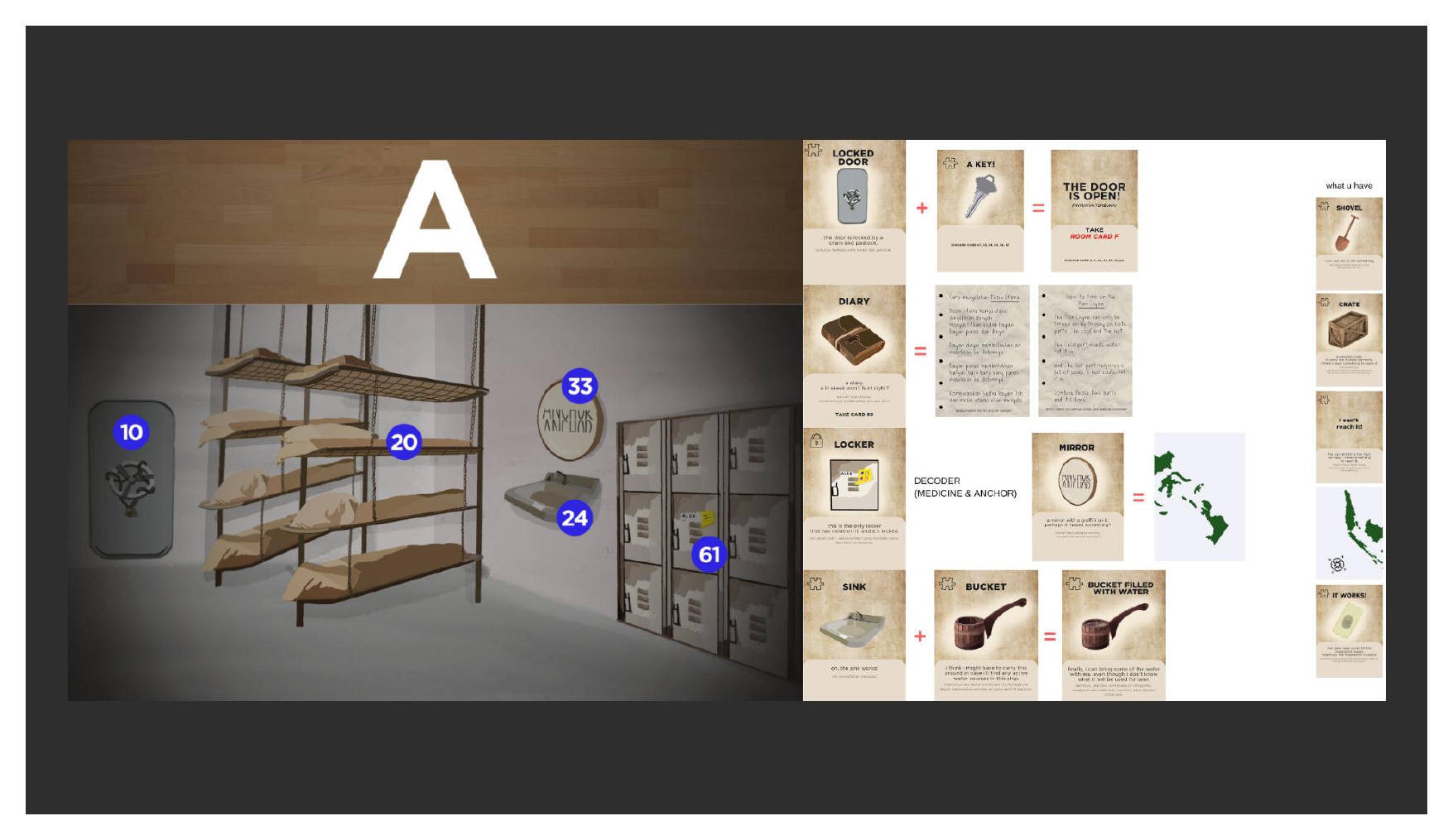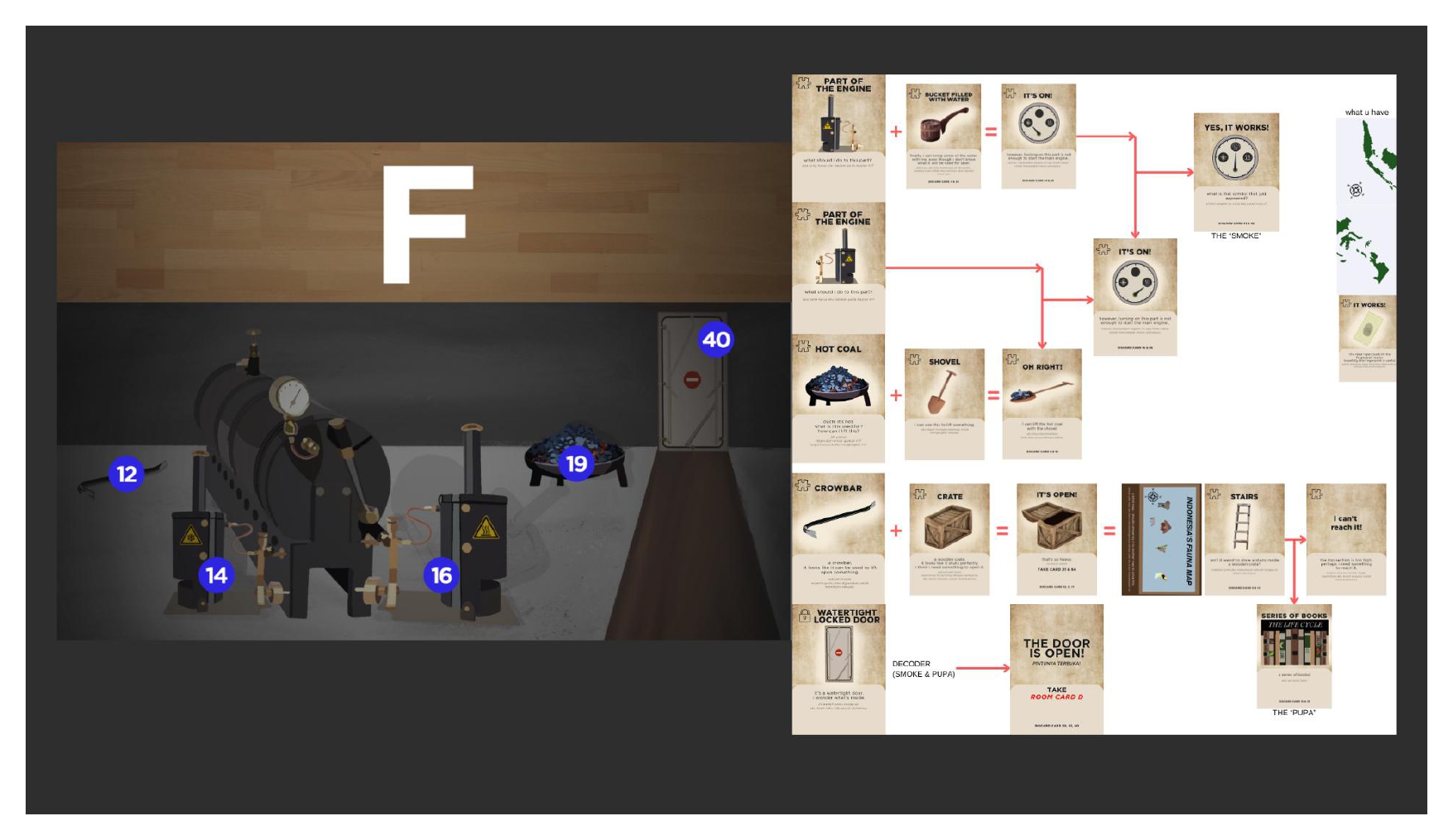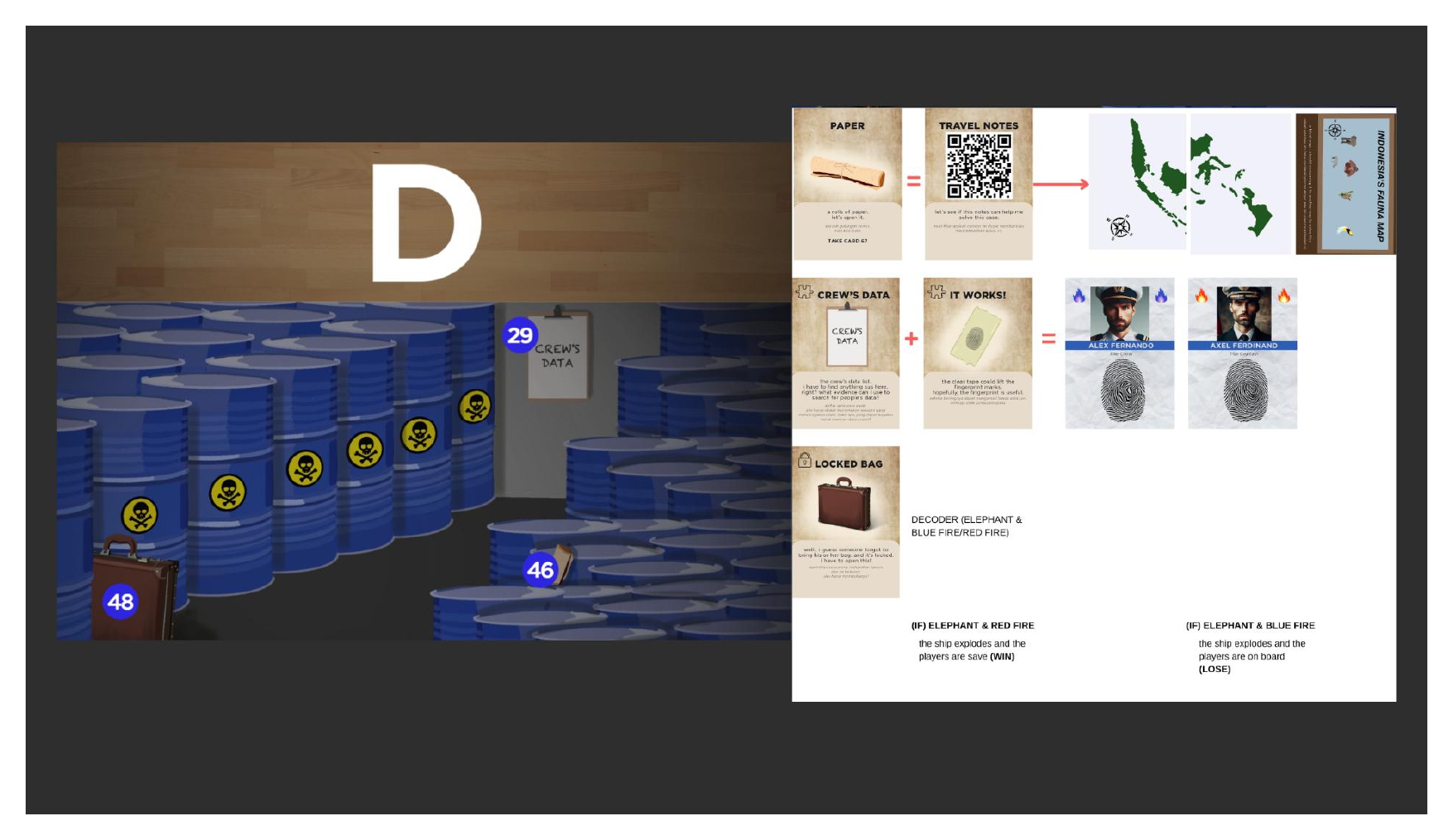Jessica Adonia Setiawan – Design of an Escape Room Themed Board Game “Sea Expedition: The Mystery of SS Ourang Medan” as a Media for Self-Development for Generation Z
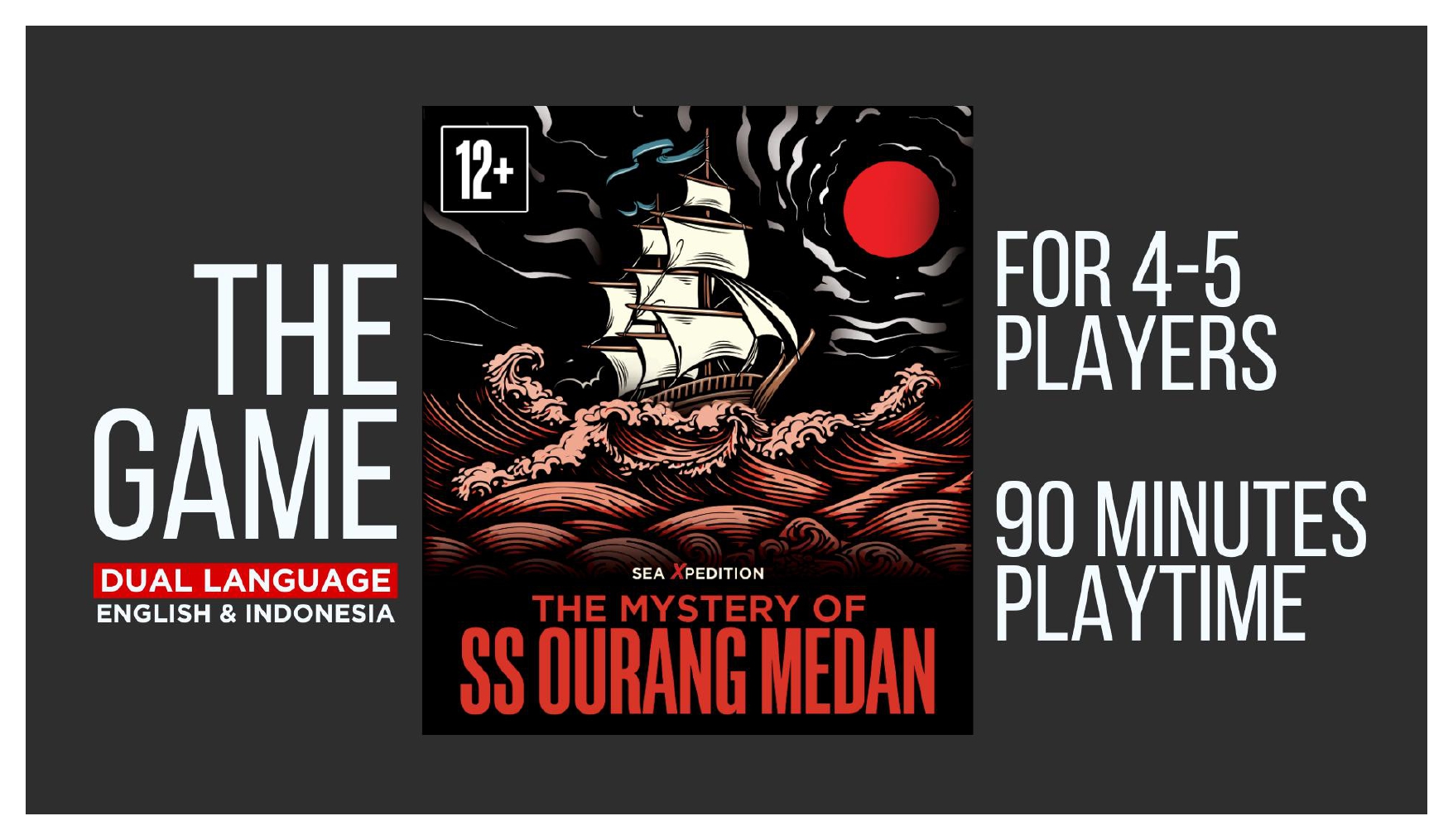
Introduction
Since 2015, Indonesia has experienced a demographic bonus. The demographic bonus is a situation where the productive age population (15-64 years) has a larger percentage than the non-productive age population (>64 years). It is estimated that the peak of this demographic bonus will be in 2020-2035. Based on the results of the population census by the Central Statistics Agency (BPS) in 2020, Indonesia’s population is dominated by Generation Z with a population percentage of 27.94%, while in second place is the Millennial Generation with a rate of 25.87%. From this percentage, it can be concluded that Generation Z dominates and plays an important role in the development of Indonesia now and in the future. Gen Z is a very fluent generation and closely related to technology. The technological developments they experience do not always have a positive impact. Several negative impacts on Gen Z’s self-development occur due to the easy access to technology that is felt from an early age. Gen Z tends to grow up to be more individualistic and egocentric. Apart from that, they find it difficult to focus on one thing and appreciate the process less or are more interested in instant things. These things are important things that need to be addressed and improved, considering that the composition of the population in Indonesia is dominated by Gen Z and their age has begun to enter the world. Improving the character that is inherent in Gen Z is certainly not easy. Therefore, appropriate and gradual learning methods are needed to improve it. Albert Einstein once said, “When you stop learning, you start dying. Brain is like a muscle, the more it is used, the stronger it gets. People better use it to learn new skills to adapt themselves to what’s coming their way!” which means, if you stop learning, you start dying. The brain works like a muscle, the more often it is used, the stronger it becomes. Humans are better off using it to learn new things, to adapt to things to come. Humans will never stop learning. We just changed the learning method. Entering adulthood, there are several important competencies that each individual must have, namely innovation capability, coordination, analytical thinking skills, flexibility, relationship-building skills, communication skills (Hecklau et al., 2016), strategic thinking (Ras et al., 2017 ), flexible decision making and problem-solving skills (Gorecky et al., 2014). These competencies can of course be learned conventionally. However, previous research stated that learning using conventional methods for teenagers resulted in many training participants losing their motivation and interest in learning (Zichermann & Cunningham, 2011). Therefore, in the last few years, a learning method has emerged that uses board games as media. Board games are games that have various elements to support the game. Such as boards, dice, pawns, cards, etc. Playing is the most natural thing that every human being should do. However, as people grow older, they always feel that playing is childish and is categorized as an unproductive activity. Even though there are many benefits from playing depending on the type of game.
Escape Room is one of various types of games that uses a progressive concept in its gameplay. This game must be played in groups where the concept is that they will be locked in a room containing a puzzle and must successfully solve it to get out of the room. Even though the gameplay is more complicated than puzzle games in general, escape rooms themselves are composed of simple puzzle patterns, namely challenges, solutions, and goals. The skills required to complete this game are quite numerous. Starting from observation, and mathematics, to memory. Therefore, this is the essence of the importance of playing in a group. This Escape Room was not created solely for fun. However, this game brings many benefits for self-development. One of them is the ability to solve problems and think critically.
The many benefits of playing escape rooms make it a learning method for self-development that is fun and brings benefits for correcting character weaknesses that occur in Generation Z. In this research, the author will take the story of a historical legend in Indonesia, namely the Mystery of the SS Ourang Ship Medan. This story is a legend in Indonesian waters which is well known abroad but less well known in its own country. Therefore, the author’s hope for designing an escape room-themed board game entitled Sea Expedition: The Mystery of SS Ourang Medan, apart from providing a medium for self-development for Generation Z, is to introduce Indonesian historical legends to Generation Z. So that players can unconsciously develop yourself while learning about Indonesian historical legends through board games.
LITERATURE REVIEW
State of The Art
In this section, previous research will be attached that is connected to the topic of board games as educational media or escape rooms and their various benefits. Previous research has an important role for any new research to become a reference before carrying out research or design. Previous research is used to identify developments and shortcomings so that they can be corrected in this design.
Escape Room
Escape Room is a group game where players have to “escape” from a locked room filled with missions and challenges within a specified time. The puzzles in the Escape Room have a fairly simple concept. Simple examples of puzzles that are most often found in an escape room are:
- Challenge: A box is locked with a three-digit combination lock
- Solution: Combination of three numbers
- Destination: Items in the box
Escape room puzzles require key skills such as searching for hidden clues, observing useful and unhelpful clues, logically connecting things, remembering important information, understanding math, processing letters and words, recognizing patterns, and analyzing equipment to solve puzzle combinations. Math-themed puzzles may lack calculating aids, so mastery of these skills is crucial.
Because the skills required for this game are quite a lot, this is the essence of this game. Players must group and rely on each other with the abilities each person has. This Escape Room was not created solely for fun. However, this game also brings many benefits for the self-development of each player. This game requires collaboration, problem-solving, and critical thinking skills from all players. It requires everyone to maximize their involvement and solve the puzzles creatively. Even the quietest person must communicate effectively in the collaborative environment. The game also motivates individuals to work towards the end, especially for Gen Z who tend to be unfocused and easily bored. By requiring everyone to work together, the game fosters a sense of unity and encourages individuals to finish the puzzles until the end.
Self Development
Self-development is a process, method, or action to develop or increase all the potential that exists in oneself. Self-development can be achieved through experience, accepting criticism from others, practicing sensitivity towards oneself and others, and so on. Self-development offers numerous benefits to individuals, including improved skills, increased self-satisfaction, enhanced insight, better stress management, improved relationships, and increased creativity. It can lead to new career opportunities, enhanced performance in activities, and expanded relationship networks. Self-development also enhances self-confidence, allowing individuals to make better decisions and feel more confident. It also provides a new mindset, enhancing understanding of the world and improving the quality of life. It also aids in overcoming stress by learning stress management techniques and enhancing self-control in difficult situations. Furthermore, self-development enhances social skills, enhancing personal and professional relationships. Lastly, it boosts creativity, enabling individuals to think creatively and solve problems more effectively.
Self-development has many benefits and is relevant to apply in real life. Generation Z must also carry out self-development to achieve success in a world that continues to develop. Self-development for Generation Z is useful for improving new skills, knowledge, and understanding so that they can adapt to the world and its rapid progress.
Roadmap
A road map is a plan that explains the author’s steps. This plan consists of five stages. The first stage is ‘Identification’. This stage will determine what research the author will carry out. At this stage, the author will find out what problems are occurring and identify whether the problem needs to be fixed or not. The second stage is ‘Gathering Information and Data’. At this stage, the author has decided what problem to address. The author will look for further data and information regarding the problem to be discussed. Data is sought through primary and secondary data such as using questionnaires, articles, and previous research. The third stage is ‘Ideate’. At this stage, the author begins to think of solution ideas to solve the problems that arise. The fourth stage is the ‘Prototype’. At this stage, the selected ideas begin to be executed into real solutions. The author will create a prototype of the solution and it will be tested. The final stage is ‘Testing’. At this stage, the prototype created by the author in the previous stage will be tested on a portion of the target market to see whether the solution is appropriate to solve the existing problem or not. If it is felt to be lacking, the author will review and improve it.
RESEARCH METHOD
The method used in this research is the Design Thinking method supported by a qualitative approach. There is a variety of data that has been collected, both primary data and secondary data. Primary data was obtained through questionnaires. Secondary data was gathered from literature reviews, including e-books, journals, and recent board game articles.
Design Thinking
Design Thinking is a process of exploration and creative strategies used by designers in the design process (Visser, 2006). Design thinking has five stages, namely:
Empathize, at this stage, the author will examine all the problems of the potential target market and how they deal with these problems. The author will interact with the target market to find out what problems are being faced and why these problems cannot be resolved.
- Define, at this stage, the author will define or summarize the problems that have been found to become a topic that can be discussed and a solution can be found.
- Ideate, after finding a problem, at this stage, the writer will form an idea or idea which is a solution to the problem and can be solved through a design.
- Prototyping, after the idea has been fully formed, at this stage the writer will make the idea into an object that is similar to the actual result but is not yet perfect. The purpose of making these artificial objects is to be tested on several target market samples.
- Test, at this stage, the artificial object or prototype that has been made will be tested on several target market samples to obtain feedback that can be used to perfect the final result of the object.
Questionnaire
The questionnaire in the process of designing the escape room-themed board game “Sea Expedition: The Mystery of SS Ourang Medan” as a media for self-development for Generation Z aims to find out what shortcomings generation z needs and can be corrected by the existence of an escape room themed board game “Sea Expedition: The Mystery of SS Ourang Medan”. The questionnaire was distributed on February 24 2024 via the Instagram platform. The media used in this questionnaire is online media, namely Google Forms.
The results were that 75% validated that Gen Z’s shortcomings were true, 100% felt that they needed to be improved and 82% found it difficult to improve themselves. Based on the data that the author has obtained, it is proven that Generation Z has shortcomings that can hinder it. However, they have the awareness that their shortcomings must be corrected and have the intention to improve. The benefits of this game are directly proportional to the improvements that Gen Z must have, so designing an escape room-themed board game “The Mystery of SS Ourang Medan” as a medium for self-development for generation z can help Gen Z to improve the shortcomings they have in a way that pleasant.
RESULT AND DISCUSSION
